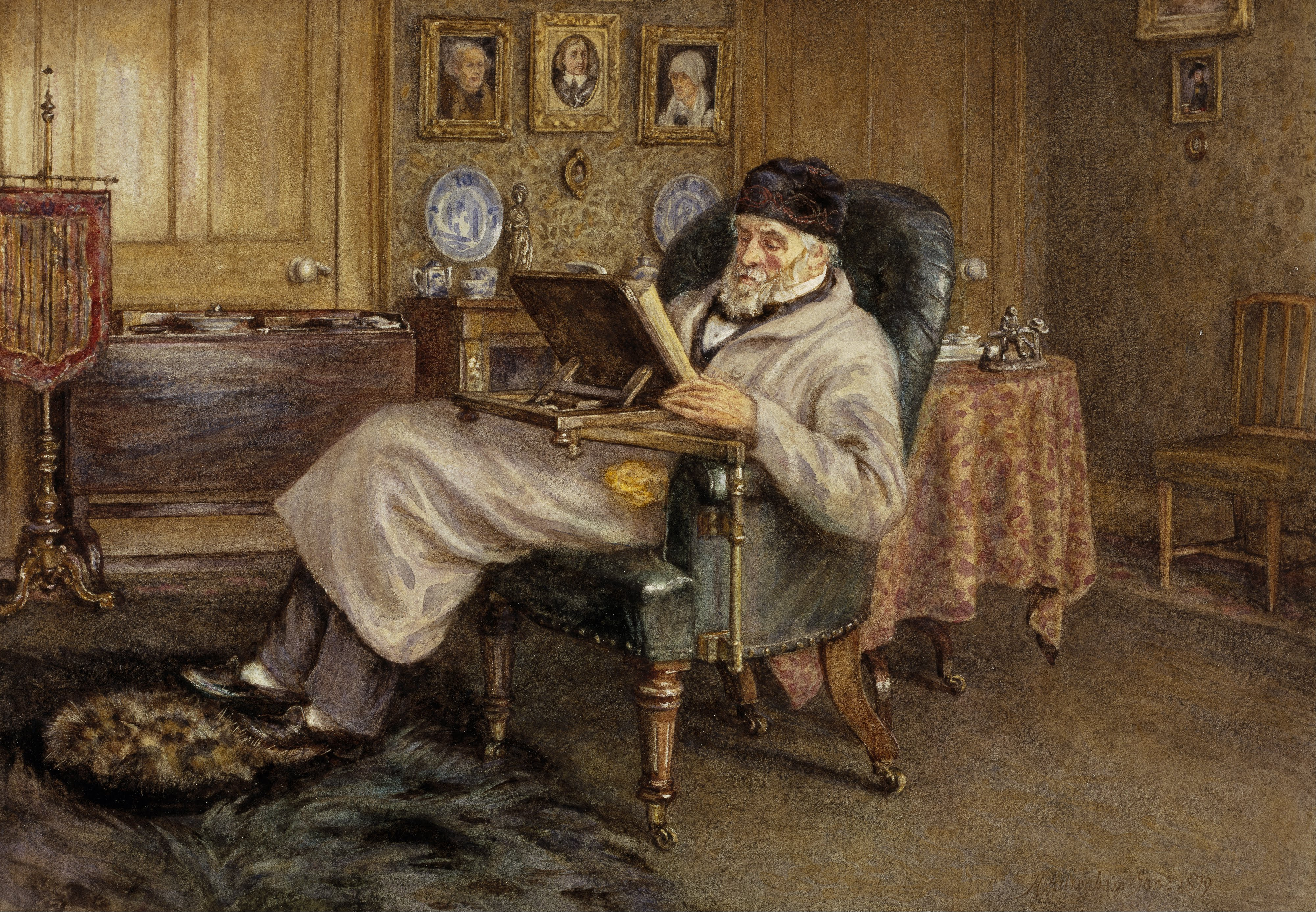 |
| Thomas Carlyle, 1795 - 1881. Historian and essayist, 1879. By Mrs Helen Allingham (1848 - 1926) (Scottish). Public Domain via Wikimedia. |
 On Heroes, Hero-Worship, and the Heroic in History by Thomas Carlyle
On Heroes, Hero-Worship, and the Heroic in History by Thomas CarlyleMy rating: 3 of 5 stars
Thomas Carlyle's lectures On Heroes, Hero-worship, and the Heroic in History were delivered in 1840, and published as a book in 1841 by James Fraser, London. My version is a public domain reprint of the 1912 version published by D.C. Heath, Boston, edited and with an introduction by Herbert S. Murch, PhD, of Princeton University. I first learnt of Carlyle in teaching leadership, where this book is regarded as the first leadership theory, the "Great Man" theory. Carlyle considers the hero as divinity (Odin), prophet (Mohammed), poet (Dante, Shakespeare), priest (Luther, Knox), man of letters (Johnson, Rousseau, Burns), and king (Cromwell, Napoleon). Of note is his Orientalism toward the Prophet Mohammed. In his treatise of prophet as hero, the Muslim Prophet is sincere, yet Carlyle repeatedly turns on the Prophet in his other chapters. Notable, too, is his treatment of any hero who is not related directly to the history of England (i.e. Odin and Luther), in that Mohammed, Rousseau, Dante, and Napoleon are heroes to the non-English, and therefore cannot escape this title, but are otherwise overly-emotional hypocrites and shams in their beliefs, if not in their honour in pursuing their (otherwise incorrect) convictions. Yet Carlyle seems to use this as a vehicle for rhetoric, rather than admonishment, and his respect for these non-Anglo heroes is obvious, where he is not attempting to convince his audience that he is using these only by way of example, rather than having any respect for the "other" that is anymore than skin-deep. Nevertheless, his espousal of the "Great Man" theory is more detailed than the leadership textbooks would suggest, as it is easily dismissed due to contemporary sensibilities, yet in its historical context, it is an important starting point for any student of leadership. This edition is well-supported by notes, but it must be taken as a transcript of a lecture. If one reads this as a coherent "book", the speech is enthusiastic, to say the least, and makes for difficult reading. But after a couple of false starts, I was able to envisage Carlyle giving his lectures, and by imagining the reading to be the man actually speaking, the "book" reads quite well. I find it difficult to rate this work higher than three stars, as it is a bit like reading a medical text of the times on the benefit of leeches - in hindsight, there is much to debate. However, when one considers Carlyle's influence on the likes of Ralph Waldo Emerson, this is no light-weight intellectual, but someone like James Mill to Ricardo and Bentham, and therefore not to be too readily dismissed.
View all my reviews
 Donate
Donate









